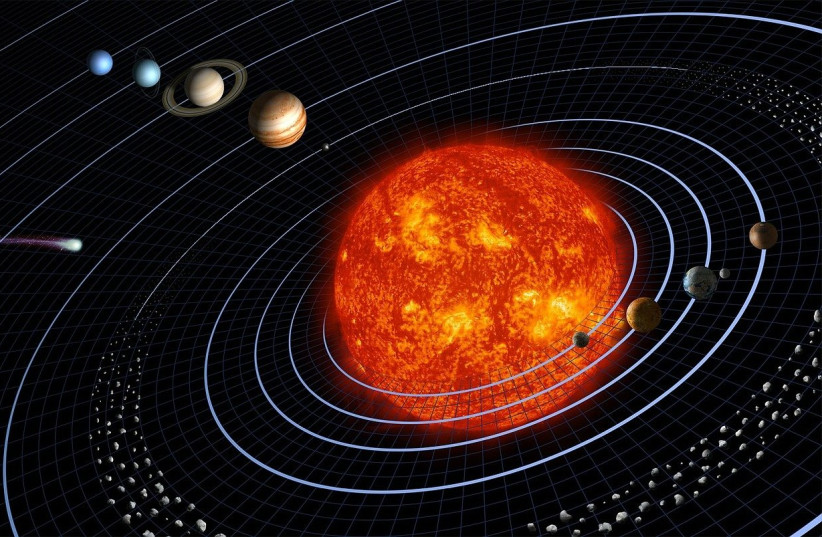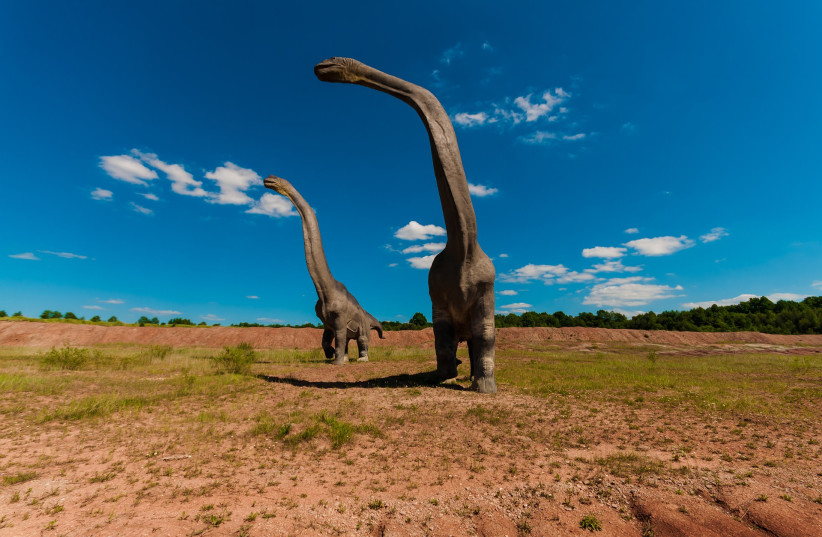A third of Russians believe Sun revolves around Earth - survey (Hasidim In Miami Ask How Else Do You Get A Suntan?)
One in five Russians believes that humans coexisted with dinosaurs. (Five of Five Hasidim Agree)
 |
| The solar system |
A third of Russians believe that the Sun orbits the Earth, according to a survey on scientific misconceptions published Tuesday by VCIOM, the All-Russian Center for the Study of Public Opinion.
The number of Russians that did not believe the Earth revolves around the Sun, 35%, had grown from the 28% that believe such in 2007.
Humans and dinosaurs coexisted?
Those that believed that human beings existed at the same time that dinosaurs roamed the earth decreased from 30% in 2007 to 21% in 2022.

Around 20% of Americans believe that dinosaurs became extinct as little as 100 years ago, according to a 2021 study commissioned by Boat Rocker Studios. About 40% of the US population believes that dinosaurs died out between 2,000 and 10,000 years ago. Some believe that dinosaurs still exist in remote locations.
Issues of scientific literacy in Russia
“According to the results of the survey, it is clear that Russians have an average and low level of scientific literacy," said Anna Kuleshova, VCIOM department of publishing program head. "The same situation takes place in many countries of the world: Anti-scientific views are steadily preventing not only education but also - as we have seen recently - anti-pandemic measures, vaccination, etc."
The study noted that while many were mistaken about the solar system, the general scientific literacy of the population was gradually increasing over the last 15 years.
"Logically, the first step in the fight against low literacy should be the recognition of people broadcasting pseudoscientific judgments that their level of knowledge is low and insufficient," said Kuleshova. "But this is precisely what is almost impossible: The less literate a person is, the more he is convinced that he knows everything, and is not prone to critical thinking."
The survey found that young people, active Internet users, those with higher education, and residents of Moscow were among those with higher levels of scientific literacy. Those with lower levels of scientific literacy were those older than 60 years, those who watched television regularly, lived in rural areas and had secondary school and less education.
The study was done by a telephone survey of 1,600 people aged 18 and over. The margin of error was 2.5%.
VCIOM is a state-owned polling firm and says on its website that it is the most well-known polling company in Russia.

